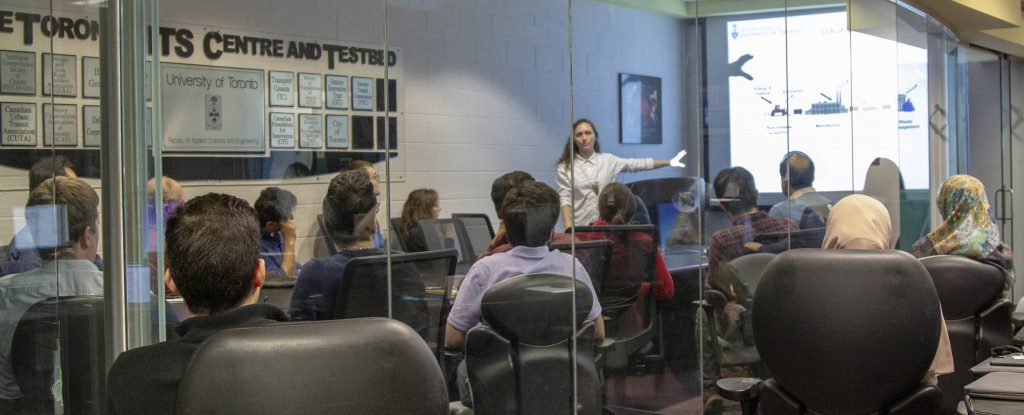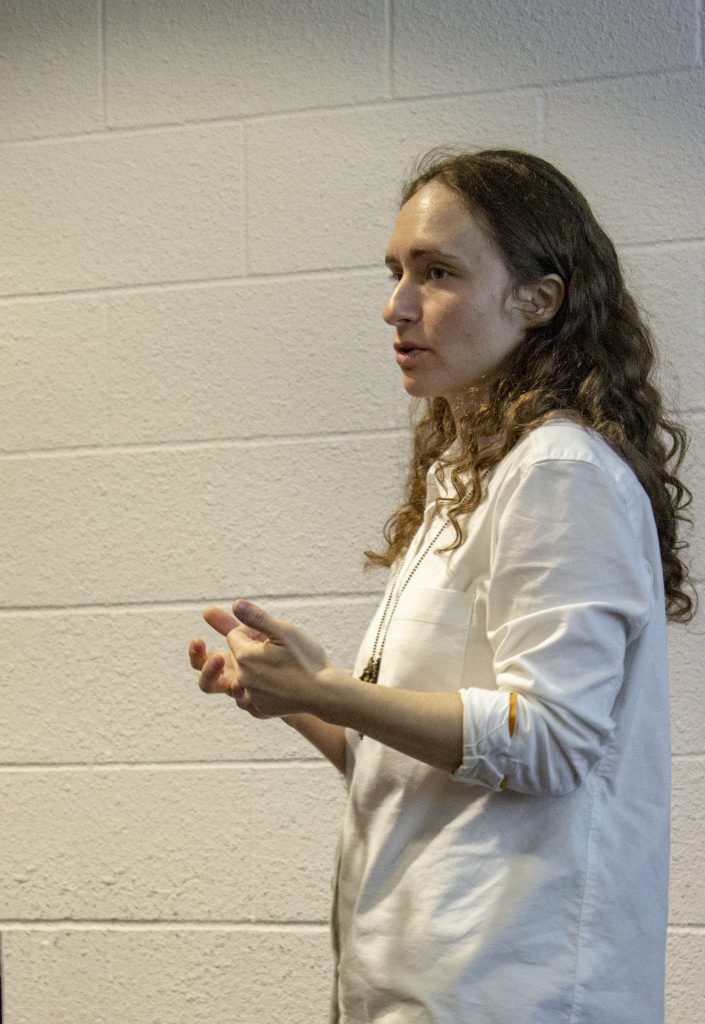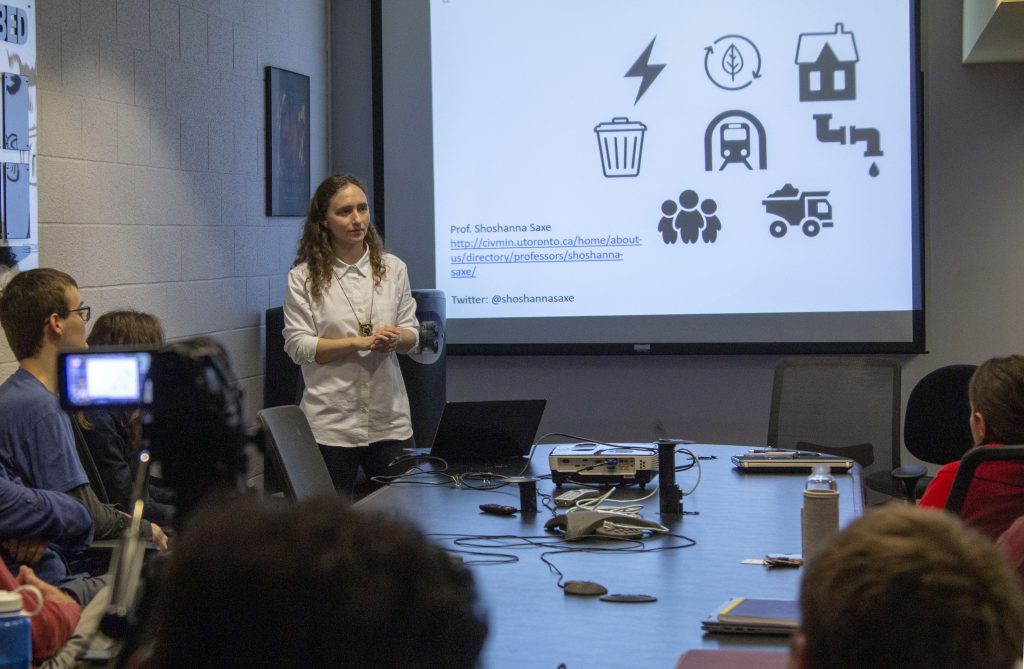
Shoshanna Saxe, Assistant Professor at the Department of Civil & Mineral Engineering at the University of Toronto, gave a fascinating talk about the importance of understanding embodied materials and emissions in transport infrastructure Life Cycle Assesment (LCA).
The UT-ITE seminar entitled “Transport infrastructure LCA cradle to placed: Understanding embodied materials and emissions” took place on April 12, 2019. Her presentation was welcomed by a huge audience consisting of professors, postdocs and graduate students.

Professor Saxe starts her talk by giving a brief overview of her academic background in Civil Engineering and how she became interested in investigating LCA in transport infrastructure. Life cycle assessment focuses on investigating the overall environmental impact, such as total embodied GHG emission, of a product through its life.
Saxe believes that the immutable characteristics of transport infrastructure make it different from other consumer products in life cycle assessment. Therefore, a special investigation should be done in order to understand LCA of transport infrastructure.
Professor Saxe discussed her two case studies on the Sheppard subway and the Spadina streetcar for investigating embodied GHG emission in rail infrastructures and its maintenance. She believes understanding the main factors in the effect of GHG in rail infrastructure design is important for policymaking.
Professor Saxe concludes that the research on LCA of transport infrastructure is in its infancy. She believes using new construction tools and technologies can help researchers in conduct more insightful studies in understanding embodied GHG.
These are just a few points from Professor Saxe’s presentation.
A videorecording of Professor Saxe’s seminar has been posted by UT-ITE on YouTube here.

Abstract
Transportation infrastructure systems are the skeletal structure of civil society: they govern how we live, work, consume and travel. The need for quantitative understanding of the sustainability impact of transport infrastructure provision is pressing; $50 trillion will be spent globally on transportation infrastructure by 2040. To meet our long term social, economic and environmental ambitions, new approaches are needed for how we design, deliver, operate, and create policy around transportation infrastructure. This talk will explore ongoing research investigating the material use and greenhouse gas impact of transport infrastructure working towards decisions support tools to improve infrastructure delivery. Discussed research will include 1) assessment of the embodied greenhouse gas emissions in rail infrastructure, 2) the use of building information modelling (BIM) to predict embodied GHG emissions for bridge construction, and 3) bottom up city scale material flow analysis of construction materials in roads.
Short Biography

Shoshanna Saxe is an Assistant Professor at the Department of Civil & Mineral Engineering. Professor Saxe received her Master of Science in Civil and Environmental Engineering from MIT (2009) and her PhD from the University of Cambridge in Engineering (2016) (Jesus College). She investigates the relationship between the infrastructure we build and the society we create, with a particular focus on environmental sustainability. Professor Saxe is an alumna of Action Canada, a member of the Transportation Research Board’s standing committee on Transportation and Sustainability, sits on Waterfront Toronto’s Capital Peer Review Panel, and was recently recognized by Clean 50 as one of Canada’s emerging environmental leaders.
This seminar was presented by the University of Toronto Institute of Transportation Engineers (ITE) Student Chapter.
